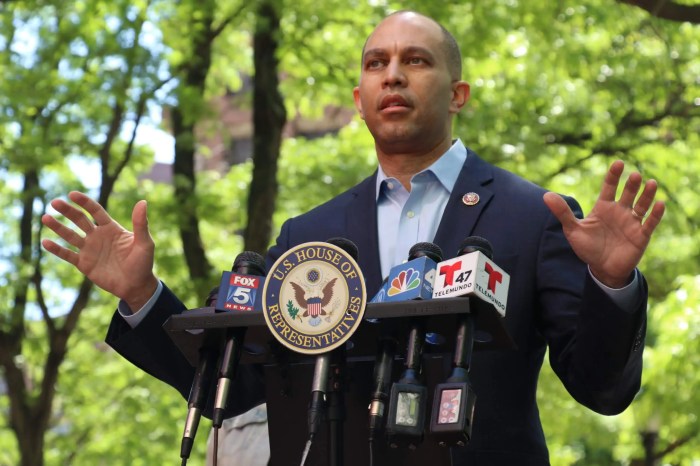Whether private, Orthodox Jewish “Shomrim” (“guards” in Hebrew) may serve any useful function is not the question. Let us assume they do. The question – which ought to answer itself – is whether New York City taxpayers should be helping to fund organizations that 1) encroach on the purview of official law enforcement agencies, 2) favor the interests of one specific community, and 3) may well suppress criminal complaints for ostensibly religious reasons.
The discrimination inherent in public funding of Shomrim is a matter of fact, not opinion. Jewish groups in New York are getting far more money through City Council than those affiliated with any other religion, even though Jews make up only about 22 percent of the city’s population. (Catholics, by contrast, make up more than 60 percent.) Manhattan Borough President Scott Stringer has said that “favoritism” is “endemic” in such a system. Clearly it is.
What’s more, the mission of groups like Shomrim is itself discriminatory. The police force is far from perfect, but unlike Shomrim patrols it is charged with protecting the entire city, not just a privileged slice of its population. And that’s precisely why everyone in the city may justly be expected to fund the NYPD. The same cannot be said for private vigilantes who, in the best of circumstances, represent only Orthodox Jewish communities. And that tells only part of the story: two years ago, the Jewish Week reported that an influential Orthodox rabbi (who still advises the state-funded, Orthodox-run Ohel Children’s Home) taught publicly that Jews may steal from non-Jews “as long as one doesn’t get caught, according to people in attendance.” I wouldn’t want my tax dollars to support private “law enforcement” that may be guided by such a view; are non-Jews likely to feel differently?
Apart from favoritism, religion-based pseudo-police are flawed from the start by their inevitable application of a specialized religious agenda to matters of public policy. Many of the rabbis and lay leaders who dominate Shomrim groups do not believe Jewish criminals should be prosecuted by non-Jews. In 2000, after a Hasidic family went to police over alleged abuse of their young son by another Orthodox Jew, some 50 rabbis signed a public announcement in a Yiddish-language Brooklyn newspaper authorizing the murder of anyone who “informs” on a fellow Jew to secular authorities.
I wouldn’t try to dictate anyone else’s religious beliefs. But taxpayers have the right to demand that their money isn’t used to promote insular religious principles that violate basic law enforcement policy.
Michael Lesher is a writer, lawyer and Orthodox Jew. He is a contributor to “Tempest in the Temple: Jewish Communities and Child Sex Scandals.”























